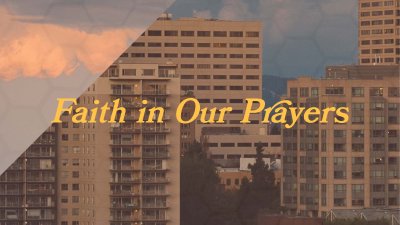Knowledge without action backing it up is worthless. Our works do not save us. Faith in Christ alone is what saves us. But if we have a faith that never expresses itself, never bears fruit—if there is no evidence of being led by the Holy Spirit— what good is it? We must not rely on our works to save us; at the same time, the way we live should be proof of the faith we claim. Our actions are a witness to the world of our beliefs. It is absolutely vital to understand that James’ point here is that works must not be added to faith, but that genuine faith includes works. This is the true religion James has been speaking about.

Faith At Work (BG)
Battle Ground Campus
July 25, 2021 • Rob Williams • James 2:14–26
More from
Faith Works





